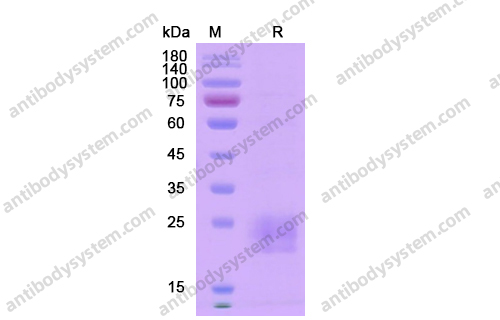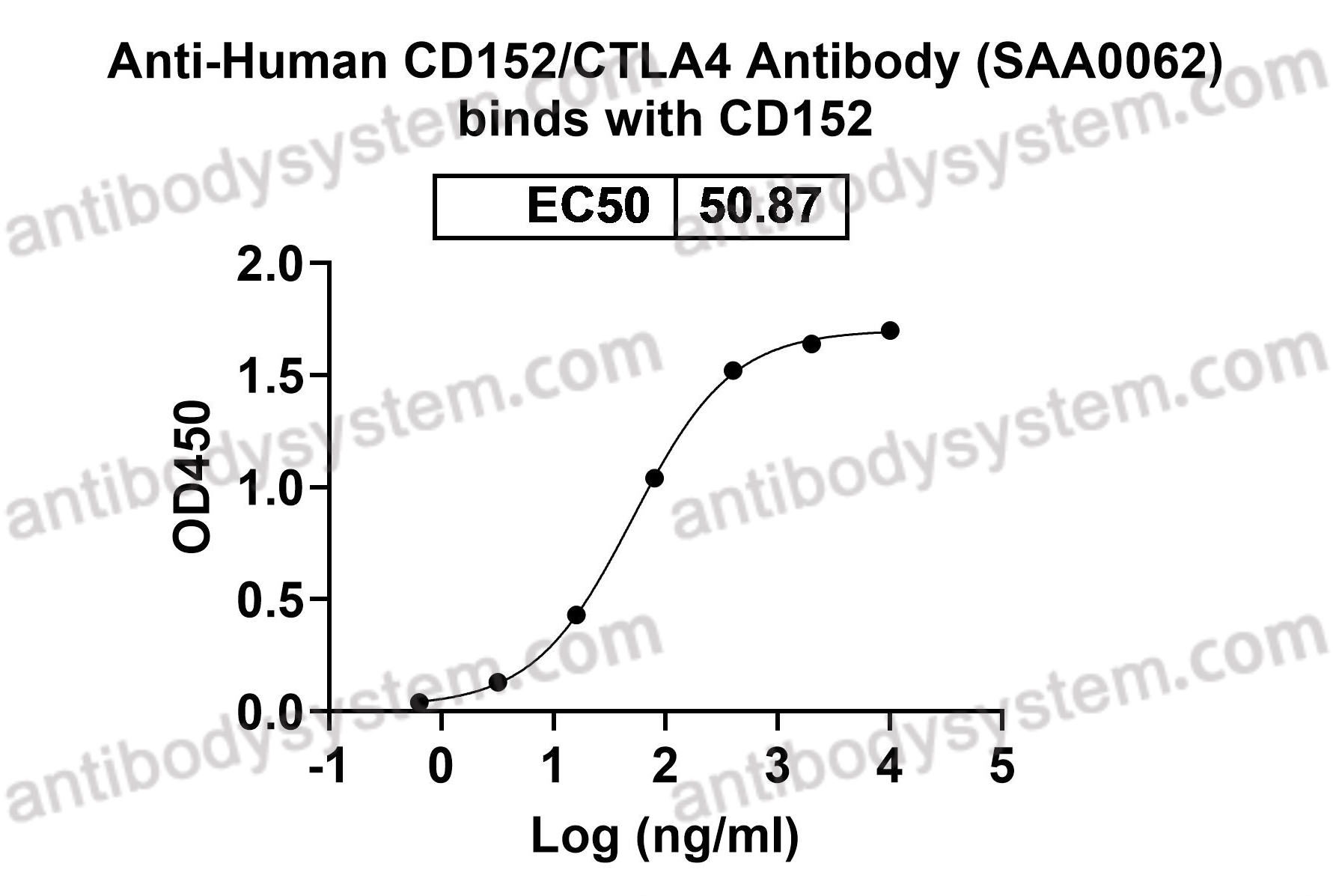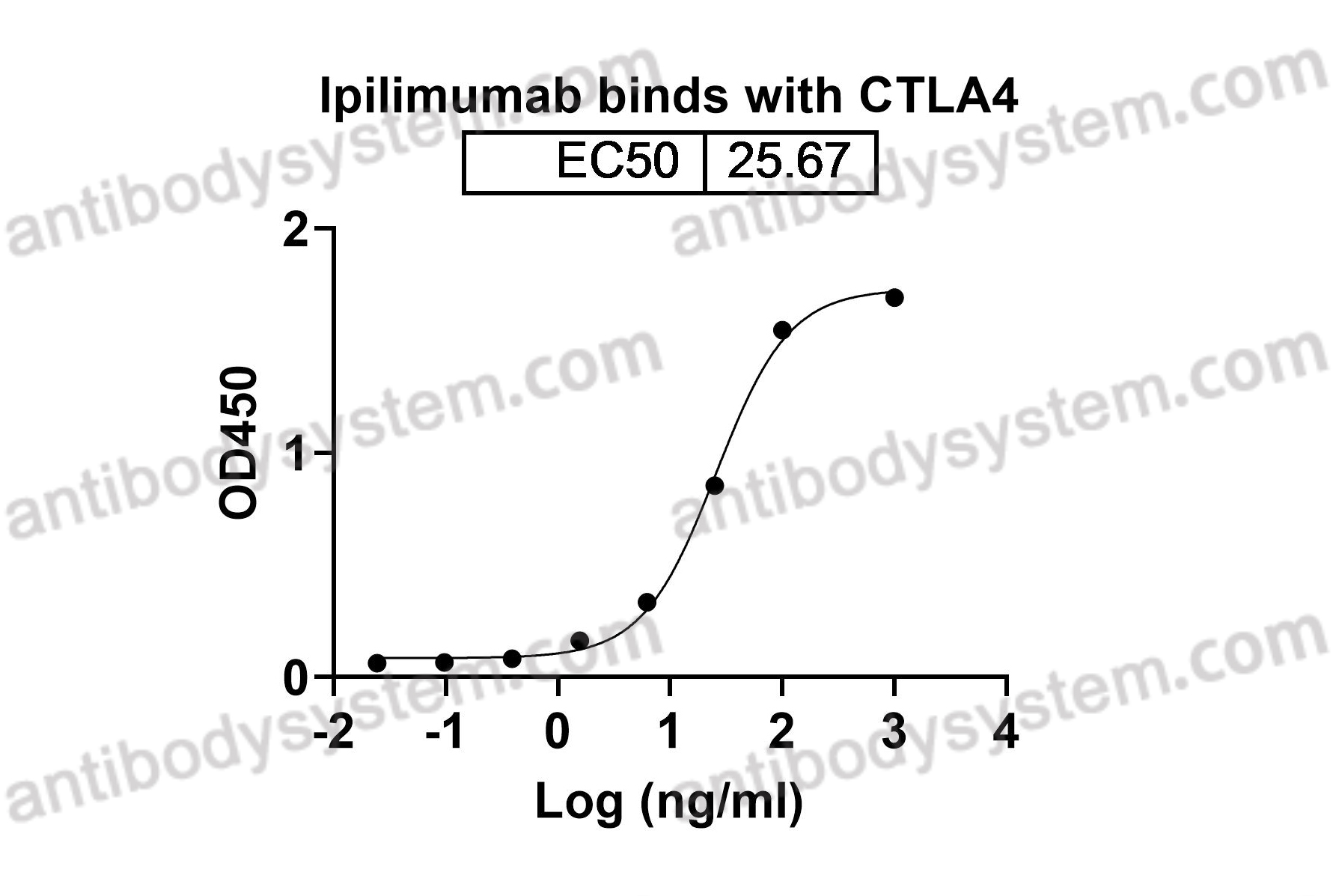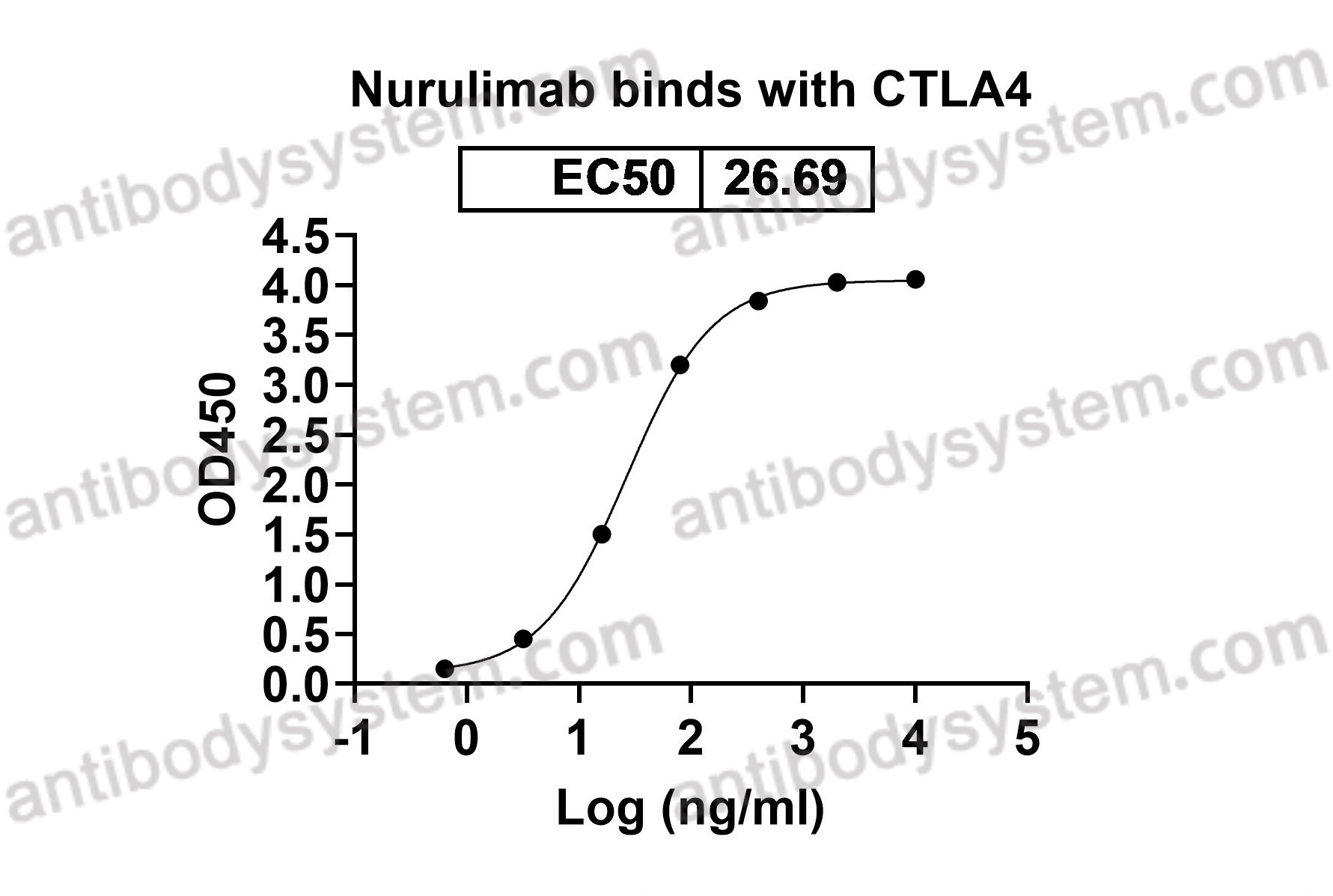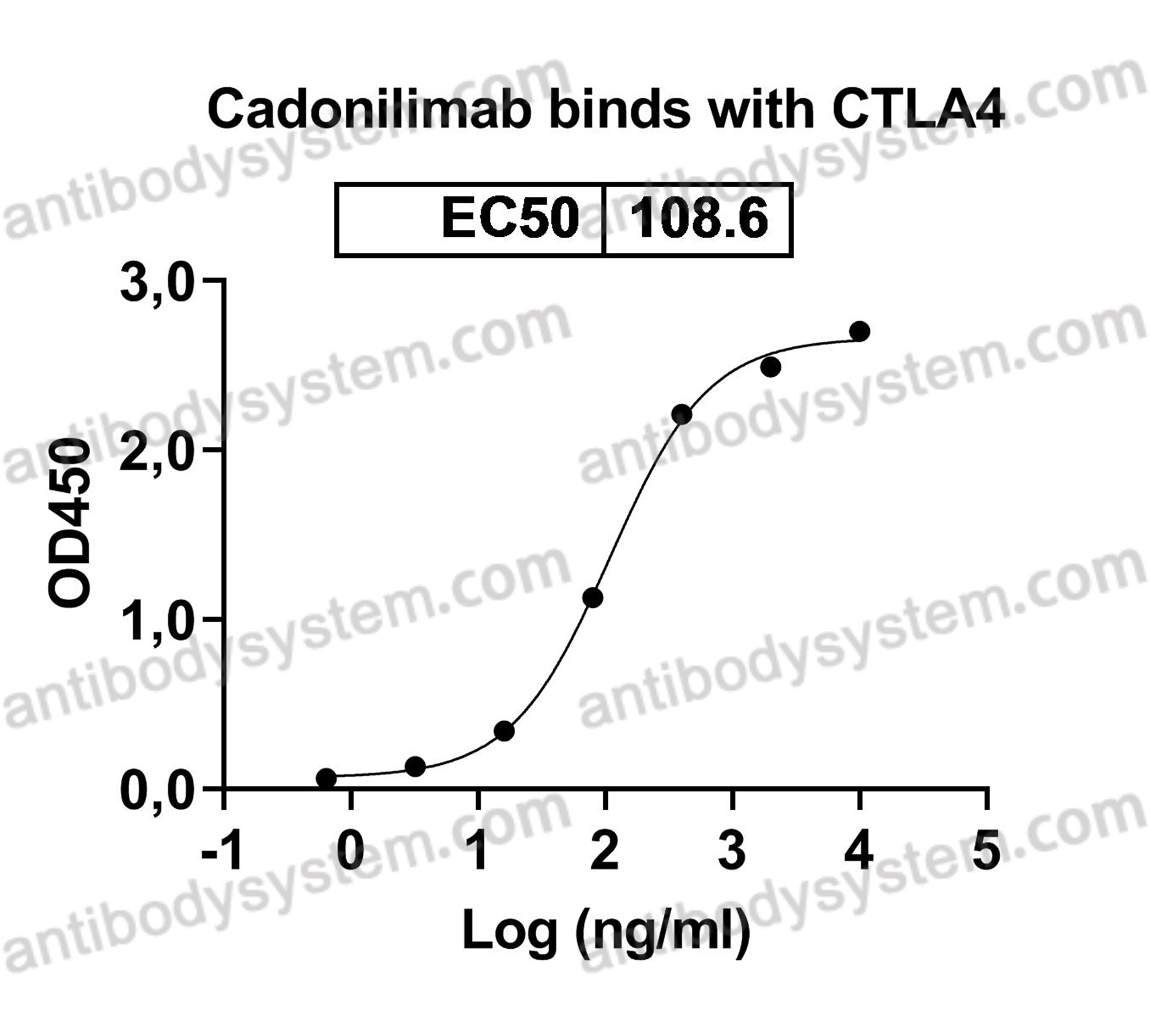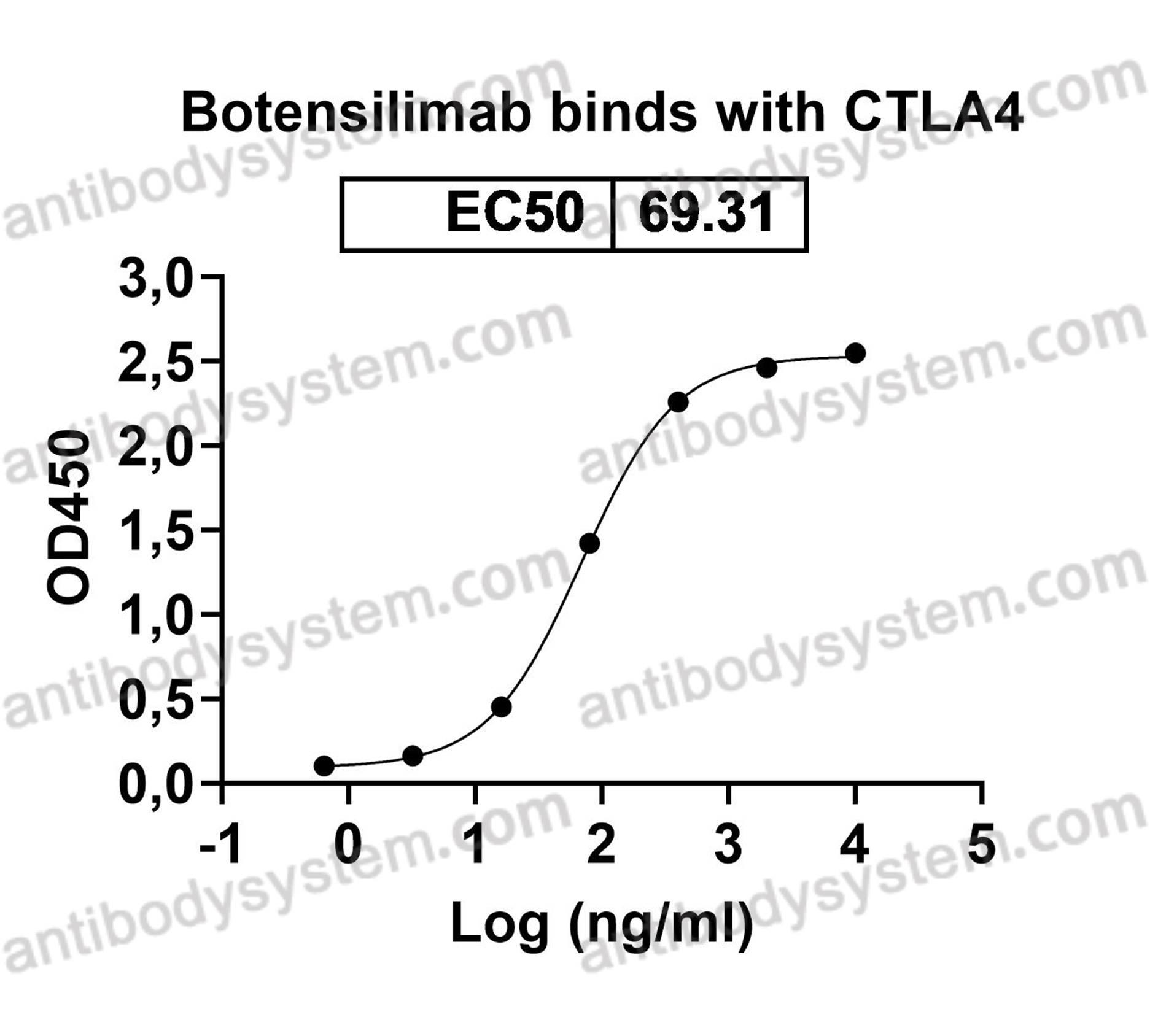Catalog No.
EHD17201
Expression system
Mammalian Cells
Species
Homo sapiens (Human)
Protein length
Met1-Asp161
Predicted molecular weight
18.51 kDa
Nature
Recombinant
Endotoxin level
Please contact with the lab for this information.
Purity
>90% as determined by SDS-PAGE.
Accession
P16410
Applications
ELISA, Immunogen, SDS-PAGE, WB, Bioactivity testing in progress
Form
Lyophilized
Storage buffer
Lyophilized from a solution in PBS pH 7.4, 1mM EDTA, 4% Trehalose, 1% Mannitol.
Reconstitution
Reconstitute in sterile water for a stock solution.A copy of datasheet will be provided with the products, please refer to it for details.
Shipping
In general, proteins are provided as lyophilized powder/frozen liquid. They are shipped out with dry ice/blue ice unless customers require otherwise.
Stability and Storage
Use a manual defrost freezer and avoid repeated freeze thaw cycles. Store at 2 to 8°C for frequent use. Store at -20 to -80°C for twelve months from the date of receipt.
Alternative Names
CD152, Cytotoxic T-lymphocyte protein 4, CTLA-4, CTLA4, Cytotoxic T-lymphocyte-associated antigen 4
Immunohistochemical expression of PD1, LAG3, and CTLA4 in diffuse large B cell lymphoma, clinicopathological correlation, and prognostic value., PMID:40481915
CTLA4 Single-Nucleotide Polymorphisms Influence the Risk of HSV and VZV Infection in Kidney Transplant Recipients: A Prospective Cohort Study., PMID:40469083
Mathematical Modelling and Optimization of Medication Regimens for Combination Immunotherapy of Breast Cancer., PMID:40455115
Association of CTLA4 Gene Polymorphisms with Rheumatoid Arthritis Susceptibility., PMID:40421924
CD28 and CTLA4 polymorphisms associated with ankylosing spondylitis: a study in the context of HLA-B27., PMID:40389847
Cracking Chordoma's Conundrum: Immune Checkpoints Provide a Potential Modality., PMID:40386066
Mixing it up: boosting responses with immunotherapy combinations., PMID:40335428
Cadonilimab, a PD-1/CTLA-4 bispecific antibody in unresectable hepatocellular carcinoma: a real-world study., PMID:40293533
SAMSN1 causes sepsis immunosuppression by inducing macrophages to express coinhibitory molecules that cause T-cell exhaustion via KEAP1-NRF2 signaling., PMID:40293473
CTLA4 Haplotype Structures and -318 C>T (rs5742909) Genetic Variant Contribute to the Susceptibility of HPV Infection and Cervical Cancer., PMID:40284896
CTLA4 modulates B cell receptor signals to inhibit HBsAb secretion in chronic hepatitis B patients., PMID:40279930
Assessment of the potential impact of polymorphisms in the Foxp3 and CTLA-4 genes in immune balance and disease susceptibility of primary Sjögren's syndrome., PMID:40279157
Impact of steroid dose and timing on efficacy of combination PD-1/CTLA-4 blockade., PMID:40248956
Investigation of immune checkpoint molecules (CTLA-4, PD-1, PD-L1, Tim-3) expressions in preeclampsia: A comparative study of membranous and soluble forms., PMID:40154098
CTLA4 Alteration and Neurologic Manifestations: A New Family with Large Phenotypic Variability and Literature Review., PMID:40149457
Soluble CD27 differentially predicts resistance to anti-PD1 alone but not with anti-CTLA-4 in melanoma., PMID:40148586
Anti-CTLA4 Therapy Leads to Early Expansion of a Peripheral Th17 Population and Induction of Th1 Cytokines., PMID:40145982
Single-cell RNA sequencing reveals an IL1R2+Treg subset driving immunosuppressive microenvironment in HNSCC., PMID:40131478
Upregulated TCF1+ Treg Cells With Stronger Function in Systemic Lupus Erythematosus Through Activation of the Wnt-β-Catenin., PMID:40129177
Implication of the HLA-DQA1, HLA-DQB1 and CTLA-4 alleles in the susceptibility to type 1 diabetes in Jordanian population., PMID:40117003
The clinical potential of PDL-1 pathway and some related micro-RNAs as promising diagnostic markers for breast cancer., PMID:40108523
Efficacy and safety of KN026, a bispecific anti-HER2 antibody, in combination with KN046, an anti-CTLA4/PD-L1 antibody, in patients with advanced HER2-positive nonbreast cancer: a combined analysis of a phase Ib and a phase II study., PMID:40108113
Reactivation of CTLA4-expressing T cells accelerates resolution of lung fibrosis in a humanized mouse model., PMID:40100323
Efficacy and safety of cadonilimab (PD-1/CTLA-4 bispecific) in combination with chemotherapy in anti-PD-1-resistant recurrent or metastatic nasopharyngeal carcinoma: a single-arm, open-label, phase 2 trial., PMID:40069710
Early CTLA4 increase in CD45+ blood cells: an emerging biomarker of atezolizumab-bevacizumab resistance and worse survival in advanced hepatocarcinoma., PMID:40048814
Single-Cell Analyses Reveal a Functionally Heterogeneous Exhausted CD8+ T-cell Subpopulation That Is Correlated with Response to Checkpoint Therapy in Melanoma., PMID:40042995
Combination of cadonilimab (PD-1/CTLA-4 bispecific antibody) and apatinib as salvage therapy achieves partial response in MSI-H advanced gastric cancer: a case report., PMID:40040691
Different Immunohistochemical Expression of CTLA-4 in Diffuse Large B-Cell Lymphoma and Its Associated Prognostic Factors., PMID:40022684
High Antigenicity for Treg Cells Confers Resistance to PD-1 Blockade Therapy via High PD-1 Expression in Treg Cells., PMID:40017103
Design of high-affinity binders to immune modulating receptors for cancer immunotherapy., PMID:40011465
Immunological Landscape of Non-Melanoma Skin Neoplasms: Role of CTLA4+IFN-γ+ Lymphocytes in Tumor Microenvironment Suppression., PMID:40005446
Efficacy and safety of first-line PD-1/PD-L1 inhibitor in combination with CTLA-4 inhibitor in the treatment of patients with advanced non-small cell lung cancer: a systemic review and meta-analysis., PMID:39981238
pH-dependent dissociation from CTLA-4 in early endosomes improves both safety and antitumor activity of anti-CTLA-4 antibodies., PMID:39964714
Topological identification and interpretation for single-cell epigenetic regulation elucidation in multi-tasks using scAGDE., PMID:39956806
Unveiling 2-isopropyl-5-methylphenol's immunomodulatory potential in breast cancer: A synergistic computational and laboratory investigation., PMID:39954792
First-in-human evaluation of memory-like NK cells with an IL-15 super-agonist and CTLA-4 blockade in advanced head and neck cancer., PMID:39948608
The anti-PD-L1/CTLA-4 bispecific antibody KN046 plus lenvatinib in advanced unresectable or metastatic hepatocellular carcinoma: a phase II trial., PMID:39920148
PDL1 inhibitors may be associated with a lower risk of allograft rejection than PD1 and CTLA4 inhibitors: analysis of the WHO pharmacovigilance database., PMID:39911399
Efficacy of CLT4A variants as immunoregulatory molecules among Vitiligo patients in Saudi Arabia., PMID:39910232
Production of novel theranostic nano-vector based on superparamagnetic iron oxide nanoparticles/miR-497 targeting colorectal cancer., PMID:39905036
Immunohistochemical Expression of PD-L1 and CTLA-4 in Triple Negative Breast Cancer and Their Prognostic Associations., PMID:39874015
Investigating the functional and structural effect of non-synonymous single nucleotide polymorphisms in the cytotoxic T-lymphocyte antigen-4 gene: An in-silico study., PMID:39854591
Engineered ipilimumab variants that bind human and mouse CTLA-4., PMID:39849917
The impact of KRAS mutations on the tumour microenvironment and treatment response in non-small cell lung cancer., PMID:39849878
OMIP-110: A 37-Color Spectral Flow Cytometric Panel to Assess Transcription Factors and Chemokine Receptors in Human Intestinal Lymphoid Cells., PMID:39838760
The effect of HLA genotype on disease onset and severity in CTLA-4 insufficiency., PMID:39835139
WGCNA and integrative network analysis identify CHRNA5 and CTLA4 as potential therapeutic targets against angiosarcoma., PMID:39832463
Estimate the relationship between CXCR4-SDF-1 axis and inhibitory molecules (CTLA4 and PD-1) in patients with colon cancer., PMID:39816054
Itaconate transporter SLC13A3 confers immunotherapy resistance via alkylation-mediated stabilization of PD-L1., PMID:39809284
Integrating CTLA-4/PD-1 blockade into cervical cancer management: Results of COMPASSION-16., PMID:39798550

